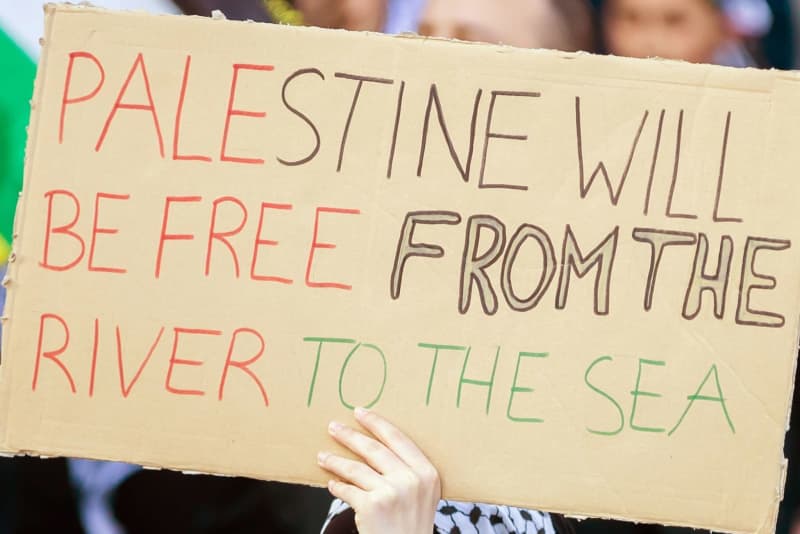Israeli Foreign Minister Gideon Saar has expressed strong approval over a recent ruling by a Berlin court that designated the controversial pro-Palestinian slogan “From the river to the sea, Palestine will be free” as associated with terrorist symbolism. Saar took to social media platform X to voice his appreciation for the decision, emphasizing that it is crucial to confront contemporary anti-Semitism, particularly those ideologies that deny the legitimacy of the Jewish state. This ruling marks a significant legal precedent in Germany, where a court found a protester guilty for the first time for using the phrase, tying it to the militant Palestinian group Hamas, which is recognized as a terrorist organization by the European Union.
The Berlin Regional Court’s verdict arose from a case in which a 42-year-old man was charged for employing the slogan during a protest. The presiding judge articulated that the phrase embodies symbols linked to Hamas, affirming its problematic nature in relation to anti-Semitic discourse. The court subsequently levied a fine of €1,300 (approximately $1,390) against the defendant, who is reportedly planning to appeal the decision, indicating ongoing debates around the interpretation of such politically charged language in public demonstrations.
The slogan in question calls for liberation across the region generally claimed by Palestinians, spanning from the Jordan River to the Mediterranean Sea. This territory encompasses all of Israel, leading many within Israeli leadership and Jewish communities to interpret the slogan as not just a call for Palestinian autonomy, but rather as an explicit denouncement of Israel’s right to exist. Israeli authorities have pointed to the phrase as a rallying cry for those who advocate for the complete dissolution of the Israeli state and view its usage in protests as a heightened expression of anti-Semitism.
In Germany, the government has taken an increasingly strong stance against symbols and slogans that are interpreted as inciting hatred towards Israel or the Jewish people. Law enforcement agencies have actively worked to limit the usage of such phrases and symbols during protests, reflecting a broader commitment within the country to combat anti-Semitism in all its forms. However, the legal framework surrounding these issues remains somewhat nebulous, as various lower courts have approached the slogan with differing interpretations that reflect the complexity of balancing free speech with measures against hate speech.
Despite Saar’s approval and the recent ruling, the legal landscape concerning the phrase remains inconsistent across Germany. There has yet to be a definitive ruling from the Federal Constitutional Court (Germany’s highest court), which has left a legal gray area regarding the use of such politically charged language. The differing court interpretations create challenges for law enforcement and provoke discussions surrounding freedom of speech, the rights of protesters, and the potential risks posed by inflammatory rhetoric.
In summary, while the Berlin court ruling signals a movement towards recognizing and legally addressing what many see as anti-Semitic expressions, it simultaneously highlights a contentious debate within Germany about free speech and the boundaries of political discourse. As legal battles continue and calls for further clarity on these issues grow, the conversation surrounding the implications of the phrase and its authoritarian interpretations will remain at the forefront of both German and Israeli political dialogue.

